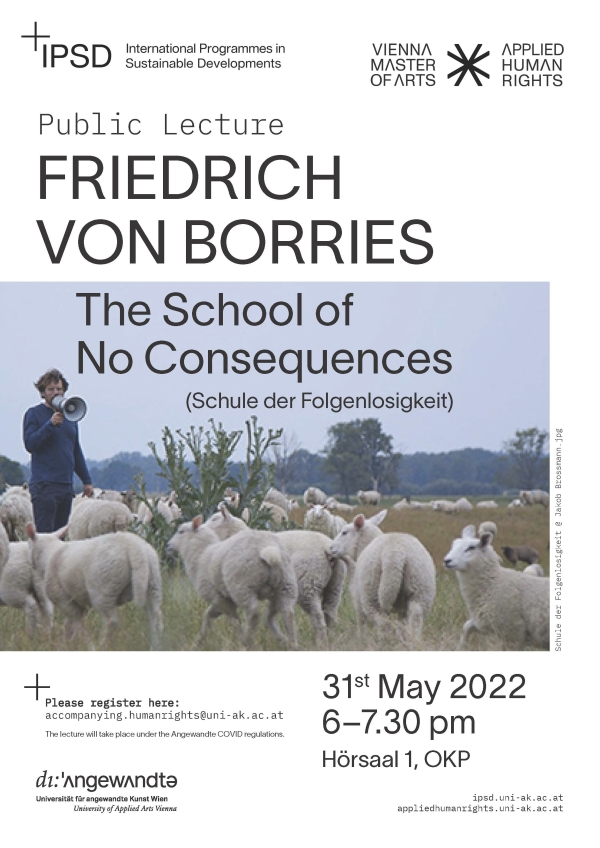International
Programmes in Sustainable Developments and Vienna MA in Applied Human Rights are organising a common
lecture series on the relations between art, sustainability, human rights, and environmental justice.
The third public lecture of this series is held by Friedrich von Borries, an architect, writer
and professor of Design Theory at the Hochschule für bildende Künste (HFBK) in Hamburg, Germany. His work oscillates between
urban planning, architecture, design and art to explore what critical design can contribute to socio-political transformation
in the face of growing inequality, environmental disasters and climate change.
“Sustainability” is a
term often used in current conversations about climate change, wasted resources, and environmental damage as well as resulting
challenges for society. But the term still carries strong technological and economic connotations and ultimately means optimizing
the exploitation of ecological and human resources. Against this, Friedrich von Borries proposes the concept of ‘non-consequentialism’
as a counter imaginary to reset the parameters within which sustainable futures are imagined and built. The term contains
a host of contradictions that can be understood as a starting point for a discussion on different individual and societal
responses and actions in the face of looming threats to humans and non-humans on planetary scale.




